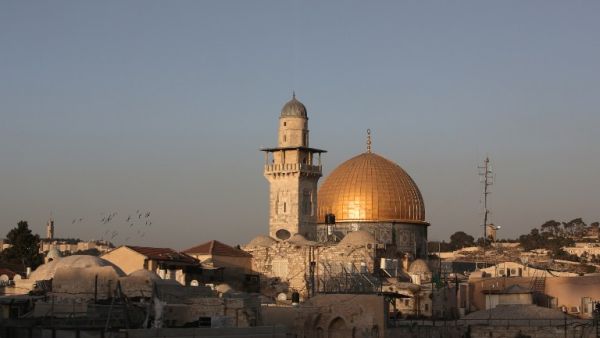In a dramatic turn of events, UNESCO was set to revisit on Tuesday a vote on a contentious resolution following an announcement by Mexico that it had changed its position on the issue and was utilizing a rare provision to allow for a re-vote.
The resolution, sponsored by several Arab countries and passed Thursday in the committee stage of the United Nations cultural body, referred to Al Aqsa and the Haram al-Sharif, known to Jews as the Temple Mount and Western Wall, only by their Muslim names and condemned Israel as “the occupying power” for various actions taken in both sites.
Israel frequently restricts access to Al Aqsa for Muslim workers and the site is often the scene of clashes between Palestinians and settlers protected by the IDF.
Mexico was one of the 24 countries that voted in favor of the resolution. Six nations (including the US, Germany and Britain) voted against and another 26 abstained.
But in a surprise announcement Monday night, Mexico said it had changed its stance and would abstain in a second vote.
“Changing the vote reiterates the recognition that the government of Mexico gives to the undeniable link between the Jewish people and the cultural heritage in East Jerusalem,” a statement from the Mexican Foreign Ministry read. “It also reflects the deep appreciation that this government has for the Jewish community and in particular for its significant contributions to the welfare and economic, social and cultural development of Mexico.”
All resolutions passed at this year’s General Conference were set to be validated by the UNESCO Executive Board in a blanket vote on Tuesday. Mexico’s decision now mandates a new committee debate on the resolution before the executive vote, which was scheduled for 11 a.m.
Mexico’s decision came after its ambassador to UNESCO, Andres Roemer, walked out of Thursday’s vote in Paris in what appeared to have been a personal protest against his country’s decision to vote in favor. The ambassador, who is Jewish, then reportedly mulled resigning his post. In its statement Tuesday, the Mexican Foreign Ministry said that he would be replaced as ambassador, and an investigation would be opened “to ascertain and determine the responsibilities of the officials involved in this issue.”
Israel’s ambassador to UNESCO, Carmel Shama-HaCohen, said Tuesday that after speaking speaking with Roemer about his opposition, he suggested the Mexican ambassador look into utilizing a clause allowing a second vote.
“We are not giving up and will fight until the end,” Shama-HaCohen said, while conceding it was unlikely the vote would be rejected, due to support from other countries. He had previously reportedly failed to delay Tuesday’s executive vote to allow for further debate.
The head of UNESCO’s Executive Board, Michael Worbs, expressed hope Friday that the resolution would not go to a formal vote on Tuesday as expected, but would instead be deferred to give dialogue a chance.
We need more time and dialogue between the members of the board to reach a consensus,” he said.
Israel and the United States suspended their funding to UNESCO in 2011 after the Palestinians were admitted as members. Both countries have lost their voting rights as a result.
The director-general of UNESCO, Irina Bokova, also Friday signaled her dismay and opposition to the motion, saying that efforts to deny history and Jerusalem’s complex multi-faith character harm UNESCO.
“The heritage of Jerusalem is indivisible, and each of its communities has a right to the explicit recognition of their history and relationship with the city,” Bokova said in a statement.
Bokova’s statement came after Israel announced it was suspending its cooperation with UNESCO over the vote, with Education Minister Naftali Bennett saying the motion was a denial of history that “gives a boost to terrorism.”
Still, Bennett, who serves as president of Israel’s National Commission for UNESCO, said Tuesday that the latest developments could lead him to reverse the decision.
“We will follow the developments today, and if the shameful decision by UNESCO is indeed canceled, we will consider resuming the professional ties, events and projects which were suspended,” he said in a statement.
Israeli leadership reacted furiously to the resolution, with some accusing the UN’s cultural arm of anti-Semitism.
By Raoul Wootliff
Editor's note: This article has been edited from the source material.









